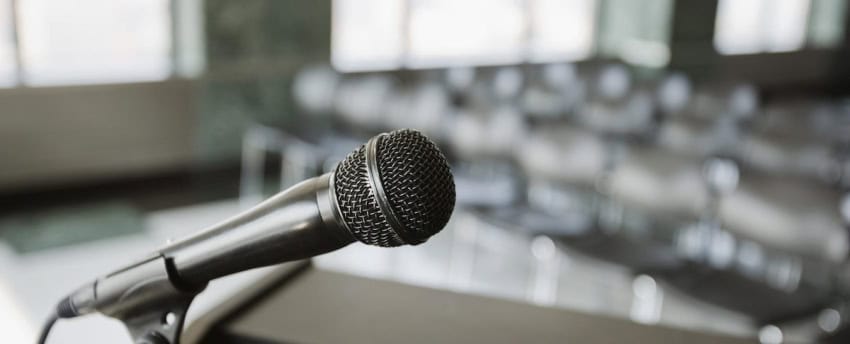Ever since I was a child, I always wanted to partake in everything that I could. In school, I wanted to be in the choir, learn piano, be part of the spelling bee team, etc. As I grew older, I started getting into other things, such as sports, theater, and even debating. For most of these things, I had to get up on stage and actually DO something physical, or at least had some sort of prop with me that gave me leverage of some sort in my mind that I wouldn’t be wasting so many people’s important time – except for debates. I had nothing. No props, no movement. Just me, on the stage, with my words, facing everyone.
I still remember this one technique:
Pretend there is a scared nervous version of yourself inside of your body. Say hello to it.
“Hello”.
Picture what he/she looks like. I pictured this fatter version of myself, with bad teeth, and the over-sized glasses and the hands glued to the sides posture.
“Hello there. You can come with me on the stage but you have to stand by the corner and just watch. Don’t be afraid. You can come with me.”
To better my public speaking skills, I interacted with people from all age groups. Current and former members of Pakistan’s debates team, well known psychologists, and even my own father, who has presented before thousands at national and international conventions.
The following are some of the things I do to prepare before any event that may require me to deliver an address –
WATCH STAND-UP COMEDIES

Before any sort of public speaking event that I have to be a part of, I watch as many stand up comedies as possible.
Not because I want to steal jokes, but because they are the best public speakers. They use the whole stage. They make faces. They engage the audience. And they are funny.
My go-to comedians:
Louis CK, Amy Schumer, Marina Franklin, Andy Samberg, Larry David (his interviews are great), Anthony Jeselnik, Bill Burr, Dave Chapelle.
TELL JOKES
Adults are not used to laughing. A child, on average, laughs 300 times a day. An adult… 5. Get people to laugh and they will remember.
THE 10 MINUTE RULE
People usually get bored and tired by ten minutes into a talk. You need to change the subject, or get them involved, or do a joke, or even do something they didn’t expect, at regular intervals to keep the crowd intrigued.
USE THE WHOLE STAGE
Move around. Nobody wants to stare at one spot the entire time.
PAUSE
Whenever you’ve made a point, or finished a story, or just delivered the punch line of a joke and the people are laughing, pause. Pause till it gets weird.
I don’t know why this is good. It just works somehow. People continue laughing.
TELL STORIES
Stories have a beginning, middle and end.
Stories usually involve a hero who really doesn’t want to be a hero, and somehow gets himself involved in a set of ever increasing problems, and along with the help of a few sidekicks, ends up solving them and then returns to tell everyone all about it.
It doesn’t matter if it’s a talk, a single tweet, or if it’s Spiderman.
You have to tell a story.
SING
People who stutter don’t stutter when they sing.
That’s because the “singing part” of the brain is different from the talking part of the brain.
What singing before going on stage will do is help activate some of the areas of your brain that control verbal expressions but may not have been on full form before you actually sang. Also personally, singing helps me feel like a performer and give me an extra boost of confidence before going up.
NO SLIDES
I hate slides. I don’t like multi-tasking, and unless I absolutely HAVE to use slides, I will not. I want people to focus on what I’m saying, not some slides on a screen. You want people to remember you, and what you said.
KNOW THE AUDIENCE
I generally love socializing, so I try to get to know as many a people during any break at an event that may require me to get on stage and say stuff. This helps me get an idea of what the majority of people are here to learn or get to know more about and how to approach them during my talk.
Do I always do well during a debates competition, MUN, as an event host? Absolutely not. Do I still get nervous before getting up on any stage, make weird faces, tell stupid jokes and sometimes get off-point, but still try my best? Always.














